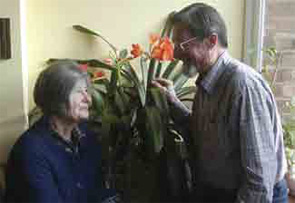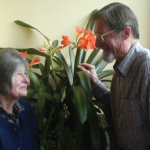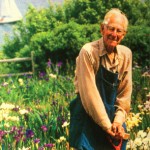His nine years in Bath were “a tremendous experience,” Dr. Bacon says. With exposure to a range of rheumatic disease, he says, “I was learning all the time.” By 1981, he had established himself as a leading immunology researcher, which led to his appointment as the ARC’s foundation chair in rheumatology at Birmingham, U.K.
The ARC was funding the setup of a rheumatology service because a survey revealed a paucity of rheumatology services for the West Midlands region, which had a population of 6 million and no full-time rheumatologist. There are now more than 30 full-time rheumatologists in the region. The situation in Birmingham was daunting. “In essence,” recalls Dr. Bacon, “it was a blank slate.” Dr. Bacon says that another physician told him he’d have to give up his interest in vasculitis because “we never see that in Birmingham.” That soon changed, as Dr. Bacon and his team set up connective tissue disease clinics specifically for vasculitis and lupus within the university. Dr. Scott worked with Dr. Bacon between 1977 and 1988, following him to Birmingham to help set up the rheumatology unit. What has always impressed Dr. Scott is Dr. Bacon’s enthusiasm. “It gets to you,” he says. “You do things that you would normally have said no to, and you end up saying yes to him, which is very annoying!”
In addition to the BVAS, Birmingham—and specifically, Dr. Bacon’s garden—became the birthplace of the British Isles Lupus Assessment Group, which two years ago again met in his garden to celebrate its 25th anniversary.

BVAS and Beyond
Loïc Guillevin, MD, PhD, of the department of internal medicine at Hôpital Cochin at the Université Paris Descartes, France, first met Dr. Bacon at an ACR meeting more than 20 years ago. Sharing an interest in the vasculidities and agreement on treatments of pulse cyclophosphamide for polyarteritis nodosa, the two began collaborating very quickly, says Dr. Guillevin.
Dr. Bacon was a key player in the third wave of vasculitis, which exploded following the discovery of the diagnostic possibilities of antineutrophil cytoplasm antibody (ANCA), says Wolfgang L. Gross, MD, PhD, medical director and chair of the department of rheumatology and immunology at the University of Lübeck, Bad Bramstedt, in Lübeck, Germany. “The second wave—people like Anthony Fauci—had new therapeutic approaches, but the third-wave group—people like Paul Bacon—began to realize that we needed instruments to measure outcomes for randomized, controlled trials.”


